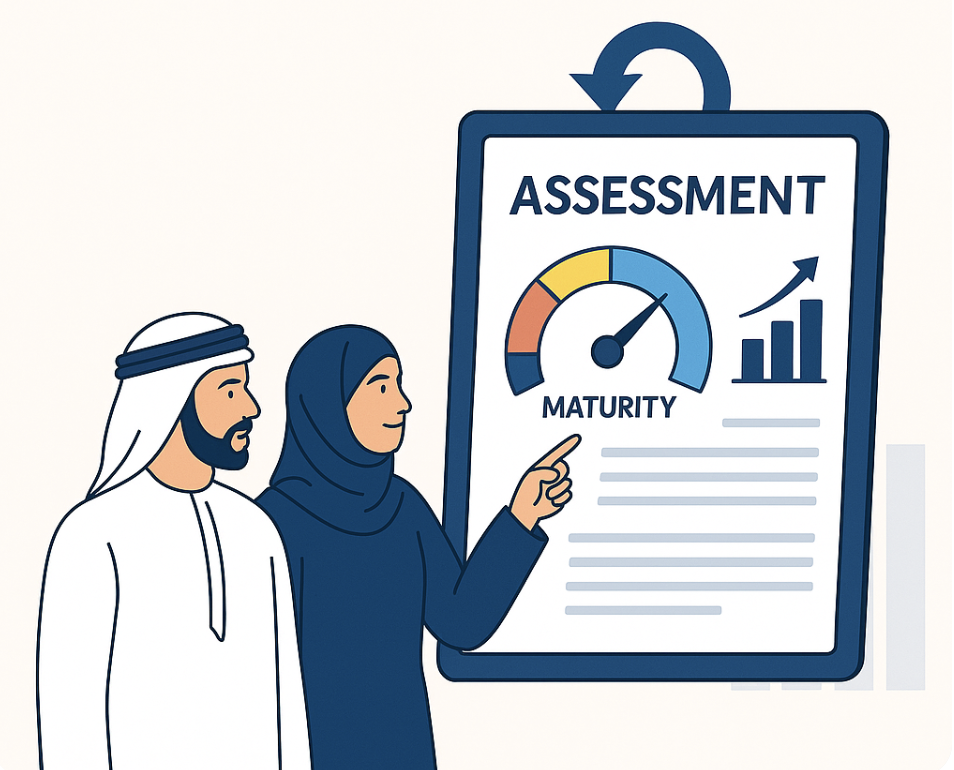Throughout any journey towards enterprise agility, particularly with the adoption of Agile Frameworks, the spotlight often illuminates IT departments and Agile coaches. However, one of the most crucial players in ensuring the long-term success of Agile transformations tends to remain in the shadows: the Human Resources (HR) department. For business leaders and HR professionals alike, understanding the critical role HR plays in driving and embedding Agile across an organisation is paramount. This article aims to underscore the importance of HR's involvement in Agile transformations, highlighting its impact on organisational culture, hiring policies, performance reviews and training.
Cultivating an Agile Culture: HR's Strategic Role
At its core, Agile transformation is as much about altering mindsets and behaviours as it is about changing processes and tools. One of the original values of the 2001 Agile Manifesto is “Individuals and Interactions over processes and tools”. The Scrum Framework is predicated on values like commitment, courage, focus, openness, and respect – values that need to be deeply embedded within the organisational culture to realise the true benefits of Agile. HR departments stand at the confluence of culture and change, making them uniquely positioned to champion these values. Becoming a high performing Agile Organisation starts and ends with its people, which is why HR is so key.
1. Influencing Organisational Culture:
HR's influence on organisational culture cannot be overstated. By advocating for Agile values and principles, HR can help shift the organisational mindset towards one that embraces change, collaboration, and continuous improvement. Creating an environment that provides psychological safety for everyone is critical to this. This builds trust in the organisation both within the team and the wider organisation. This cultural shift is crucial for fostering an environment where Agile frameworks can thrive.
2. Reinforcing Agile Values through Hiring Policies:
HR's role in hiring policies is another critical area where the department can significantly influence an organisation's Agile journey. By integrating Agile values into job descriptions, interview questions, and evaluation criteria, HR can ensure that new hires are not only skilled but also culturally fit for an Agile environment. This alignment between talent acquisition and Agile values is vital for building teams that are resilient, adaptable, and collaborative.
3. Training and Development: The Catalyst for Agile Mindset:
Beyond the mechanics of Scrum, understanding and internalising the Agile mindset, values, and principles is crucial for a successful transformation. HR departments play a pivotal role in facilitating this learning journey. Through targeted training programs and continuous learning opportunities, HR can help embed Agile thinking across all levels of the organisation. Moreover, recognising and rewarding Agile behaviours reinforces the importance of the Agile mindset and encourages its adoption.
4. Keep Employees engaged:
Employee engagement is key to a successful Agile Transformation. People want to understand why they are doing what they are doing and feel that they are adding value to a shared purpose every day they come to work. HR is key to keep a temperature check on the level of engagement and help implement strategies and culture to keep it high. At the other end of the spectrum, disengaged employees can be detrimental to the organisation and reduce the overall morale of their team.
HR's Strategic Initiatives in Agile Transformations
For HR leaders and departments eager to take a central role in Agile transformations, here are strategic initiatives that can catalyse change:
1. Agile Leadership Development:
Leadership sets the tone for organisational culture. HR can drive Agile transformations by developing leadership programs that emphasise Agile leadership styles – those that prioritise empowerment, servant leadership, and decentralised decision-making. By equipping leaders with the skills to lead Agile teams effectively, HR can ensure that Agile principles are practised at all levels of the organisation.
2. Performance Management for Agile Teams:
Traditional performance management systems often don't align well with Agile values, focusing on individual achievements over team collaboration and collective outcomes. The traditional annual performance cycle in an Agile environment is obsolete. How can we set goals for 12 months away, whilst in parallel have teams seeking to react to changes on much shorter cycles. HR can redesign performance management frameworks to recognise and reward Agile behaviours, teamwork, and team achievements. This alignment between performance management and Agile values is crucial for sustaining Agile transformations.
3. Agile HR Practices:
HR itself can adopt Agile practices to become more responsive and adaptable. Implementing Scrum or Kanban in HR projects, for example, can enhance HR's ability to deliver value quickly and respond to changing organisational needs. By modelling Agile practices, HR can lead by example, demonstrating the effectiveness of Agile methodologies beyond software development.
4. From Compliance to Creativity
HR has traditionally been a producer of instructive policies and processes that its workforce needed to comply with. This was more of a command and control adoption strategy. Fostering an environment of creativity and autonomy aligned to the Organisational goals and values is a much more effective way to align people to the organisational values and increase agility.
Conclusion: HR's Pivotal Role in Sustaining Agile Transformations
As organisations embark on the journey of Agile transformation, the role of HR extends far beyond administrative functions. HR departments are instrumental in embedding Agile across the organisation, influencing cultural shifts, shaping hiring policies, and driving training that fosters an Agile mindset. For senior business leaders and HR department leads, recognising and leveraging HR's potential is key to realising the full benefits of Agile transformations.
In essence, successful Agile transformations require a holistic approach that encompasses not just the technical aspects of Scrum but also the cultural dimensions. With HR at the heart of this transformative journey, organisations can navigate the complexities of change more effectively, ensuring a culture that not only adopts Agile practices but also lives by Agile values and principles.
If you are a Leader in HR, or in a position of influence in the organisation and you would like to learn more about driving an Agile Transformation in your organisation’s culture, contact us today.




